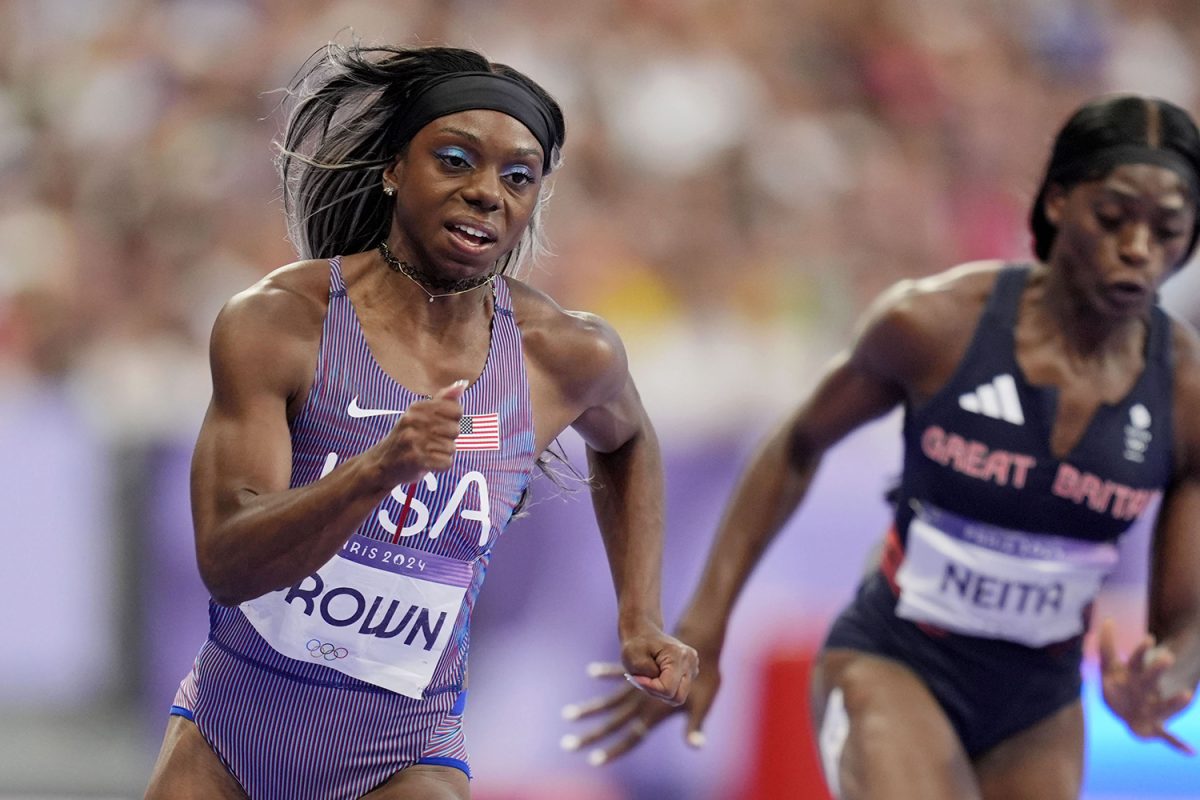Former University of Iowa sprinter Brittany Brown not only shined in her Olympic debut but also made history for her alma mater. On Tuesday, Brown — a 2018 Iowa graduate — took home the bronze medal in the 200 meters, becoming the first individual medalist in Hawkeye women’s track and field. This milestone was a watershed moment for Brown, and she used the accomplishment to acknowledge her struggles and inspire others.
Starting in lane six at the Stade de France in Paris, Brown mounted a late surge in the final stretch, passing Great Britain’s Dina Asher-Smith and Daryll Neita to claim third place. Her 22.20 time was her second-best at the Olympics, as Brown ran a 22.38 in the first-round qualifier, which prompted an automatic spot in the semifinals, where she clocked in at 22.12.
Brown finished behind gold medalist Gabby Thomas of the United States and runner-up Julian Alfred of Saint Lucia. She is Iowa’s seventh Olympic medalist in track and field and the first since 1996.
An 11-time All-American in the Black and Gold, Brown was the 200-meter Big Ten champion in 2018 and still holds the school record in the event. Longtime Iowa Director of Track and Field Joey Woody offered praise of his former pupil.
“She had a great career as a Hawkeye and it’s fun to watch her continue that success on the Olympic stage,” Woody said in a statement. “She has been able to overcome a lot of adversity by staying focused and committed to her goals. Tonight was a true culmination of everything she has put into this sport.”
During her post-race press conference with reporters, an emotional Brown elaborated on the obstacles she dealt with on the way to the podium, such as endometriosis and polycystic ovary syndrome. These conditions affect millions of women worldwide, according to the World Health Organization.
Exiting college without an NCAA individual title, Brown did not have a sponsor during her first year as a professional, according to an article from Hawk Central. In the past two years, she suffered a sports hernia and labrum tear in her hip, sidelining her from some of her training.
“For all the women who deal with health issues, to all the women who have endo, who have PCOS, to every athlete that has reached out to me and said, ‘I am not looked at, the coaches don’t pay attention to me,’” Brown said. “And I resonate with them because I am one of them. And so this is not for me, it’s for all the people who support me, all the dark-skinned girls who look like me.
“I’m just so grateful that I could be a vessel,” she continued. I’m so grateful that I can be here in this moment and be used. Because it’s not about me.”



